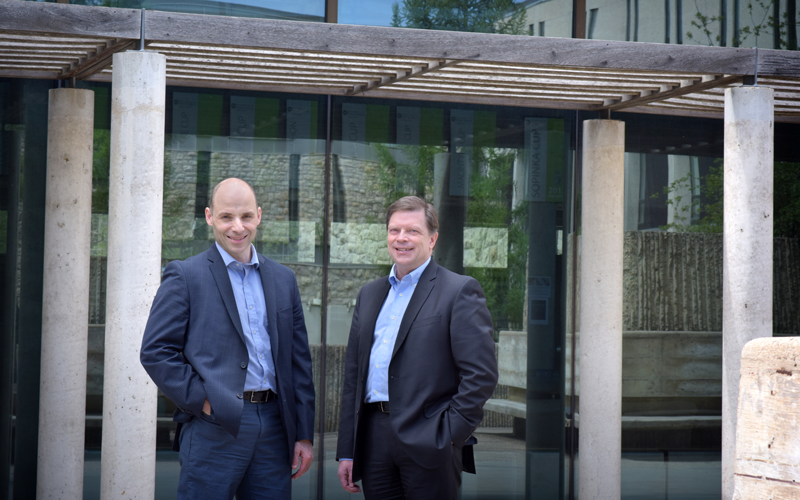
Research collaboration aims to build capacity for Northern and Indigenous communities
Professors Lee Swanson and Vince Bruni-Bossio explain the importance of community engagement and capacity building for researching the Northern entrepreneurial ecosystem, undocumented economy, and conflicts of interest.
How can entrepreneurship build social and economic capacity in Northern communities? This is the question that Lee and Vince have been tackling since their collaboration began in 2015 on a Social Sciences and Humanities Research Council (SSHRC) funded project. They have been collaborating with seven Northern Saskatchewan communities investigating the dynamics of the entrepreneurial ecosystem, undocumented economy, and more recently, conflicts of interest and Indigenous governance models.
Their collaborative work has uncovered how the dominant Western economic and governance models, often imposed, have been adapted by Indigenous communities that reflect their cultural contexts.
What is your research about?
Lee: Our research explores the ways entrepreneurship contributes to building social and economic capacity in Northern communities. Almost everything that we have done fits within that framework, including our work on the undocumented economy and governance in the North. The project is producing outcomes that can be useful and beneficial to communities, policy makers, and people who can make a real difference in the North. Our findings suggest that the North has an economy that functions differently than the South in ways that contribute positively to society. The phrase we use is the righteous undocumented economy.
Vince: When looking at boards and the governance structures of communities and organizations related to these communities, we observed tensions caused by a Western society, based in individualism, imposing ideas on an Indigenous society founded in collectivism. Given the opposition of these two ideas, we expected communities to resist Western ideas of conflicts of interest. However, we found something a little different. Communities are deciding what is the best blend of the individualistic and collectivist process and we started to theorize this as “adaptable organizational governance.”
In what ways do your findings make a difference for Northern communities?
Vince: We believe in the value that communities should be involved and engaged, and any research that we do should provide value back to the community. We truly believe that our research on the undocumented economy has assisted communities because people have told us that they are using it and it is an important paper for the North. That was important for us–that we saw it had real impact in the community.
Lee: One of the substantial outcomes of this work is that it builds awareness that there are other ways of operating and functioning than what economic theories suggest. Northern communities act in positive and righteous ways that suit their needs. We want our work to prompt the South to think differently about the North. We also want to provide some acknowledgement to Northerners that they are not wrong to persevere when maintaining their culture and ways of knowing. Our work should empower Northern communities and help people in the South to understand and value the North. That might be the real value from this research.
Why does working together work for you?
Lee: Both Vince and I aim for meaningful discovery and useful understanding of important phenomenon–like the undocumented economy and governance at the intersection of collectivism and individualism. Vince and I approach things using a collaborative mind-set. When we work together, we do so in a way that honours, recognizes, and leverages our individual strengths.
Vince: While we both experience the North differently, we have experienced the North to some degree through exploring areas of governance, leadership and entrepreneurship and we both worked with communities. I think our interests are similar, but it is not that which unites us; it is this discovery and making sense of it. That is where I think the collaboration happens.
What do you want Edwards’ students to understand by the time they graduate?
Lee: I want students to know that there is not always just one solution. Solutions are context specific and should sometimes depend on the cultural imperatives of a region. An established method they read about in an article or textbook may be applied differently in other places, and that is not wrong.
Vince: I want students to understand that governance, strategy and organizations are all about relationships. Whether we are talking about relationships between Western societies and collectivist societies, between the university and Northern economies or boards and communities–what is important is that we foster relationships with mutual respect. If we can frame this in our minds, it helps us understand and embrace the give and take in our relationships and the need for honesty in communication. I see relationships throughout all our work.
